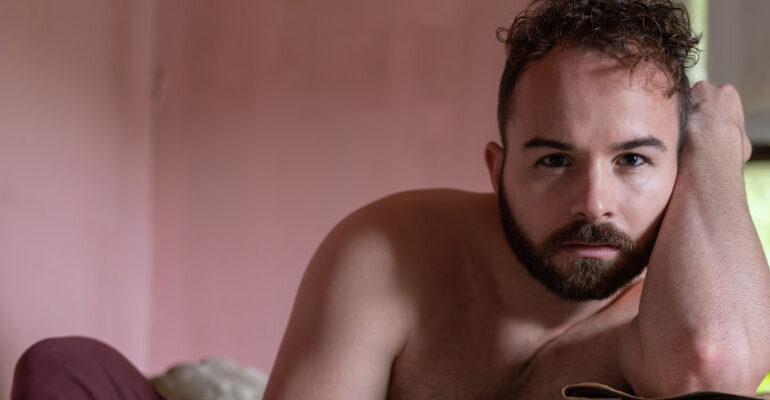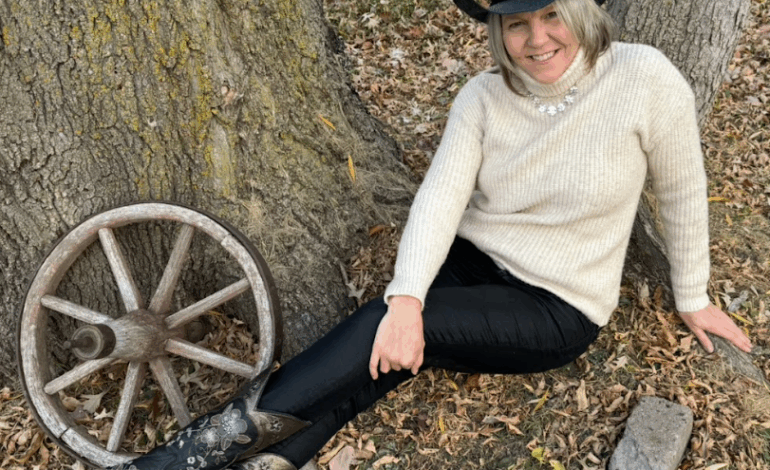To exist at the intersection of queerness, cultural duality, and independent artistry is to constantly navigate complexity—and for D’Lourdes, that navigation is not just personal, but creative. The Filipino-American artist brings a raw, unfiltered voice to a music landscape often defined by polished façades and rigid categories. In their newest album, D’Lourdes turns vulnerability into power, challenging expectations and offering a sound that resists easy classification—because it isn’t meant to be easy. It’s meant to be real. In this conversation, D’Lourdes reflects on code-switching, the nuance of representation, and the radical joy of taking up space on their own terms. What emerges is not just an exploration of identity, but an invitation to embrace the beautiful contradictions within us all.
As a queer Filipino-American artist, how does identity inform your creative choices?
I think it’s both a conscious and unconscious thought. I’ve never felt totally at home at either end of the spectrum, not feeling Filipino enough to be Filipino but not white passing enough to not feel different, if that makes sense. And the same thing goes for my queerness — always wanting to belong, and never feeling like I could. My creative choice to constantly ebb and flow between genre and expression is both something active to make me feel the most at home and what ends up coming naturally I think.
What conversations are you hoping to spark with this album in the queer community?
It’s hard for me to have a preference, cause I never feel like it’s up to me to tell the listeners what they take away from it, especially in the queer community because it’s just so nuanced so the last thing I want to do is be on a soapbox. What I can talk about are the conversations that I was drawing inspiration from that hopefully resonate in the album — what does it mean to let go of the fear of perception? What does it mean to embrace complexity instead of trying to belong in one label under one umbrella? Who are you when you stop compromising?
Was there ever a time you felt pressure to “code switch” your artistry?
Absolutely! If I’m honest, most of my artistry comes from trying to code-switch to be more palatable, but like, totally failing. When I first started out I spent a lot of time attempting to be relatable and enjoyable as opposed to being authentic. I spent a lot of time gaslighting myself into thinking that whatever unique perspective I had wasn’t going to matter to anyone because I wasn’t seeing representation relevant to me and who I am in mainstream media, so as someone had an almost obsessive drive for “success” I felt like I had to code-switch and be like everyone else, to win whatever game I made up in my head. When I was code-switching, it was even more devastating when I wasn’t getting the approval I was searching for. So not only did it not work, it felt WORSE. It’s cliché but man, just be who you are!!! When you realize no one can do you better than you can do you, your life starts to change and doors begin to open.
What’s your relationship to visibility—online and offstage?
It’s one I don’t mind as much as you’d think, cause when you become an artist you basically agree to be visible to some degree all the time. For me, there’s a comfort in being seen, and sharing my life and work openly and connecting with people brings me genuine joy. If people recognize me offstage, I don’t mind connecting at all, especially at this point in my career. It makes my work feel real and tangible, so I really do love those moments and do not take those for granted. It can get most complicated online, because the “algorithms” are quite literally monsters that demand to be fed for your account or music or content to stay afloat and can drive me a bit insane, to put it kindly… There are seasons that the necessity for visibility far surpasses my want (or time) to be visible online, and in those seasons, I do my best to post low effort content and presence and allow myself patience and space, because I can’t share as an artist effectively if I’m too overwhelmed as a human being.
How do you protect your sense of self when your work is so vulnerable?
I actually think my work is what maintains my sense of self. If I am not creating, I end up reflecting and mimicking and totally losing who I am. I realize my demeanor might say otherwise, but I grew up extremely insecure and impressionable, and those traits return when I am not working (yes I am a workaholic but I love it). When I put everything I am into my work, it’s almost like I don’t really have anything left to risk or lose so there’s nothing to be afraid of. When the work feels too vulnerable, I try to dig deeper. If I need I step away I do, but I will always do my best to come back and excavate what needs to be express, and that practice returns me to my sense of self.
Do you feel like the music industry is evolving to embrace non-binary and BIPOC artists?
I mean, it’s easy to get pessimistic with this one. I don’t want to say no, but my answer isn’t yes yet. Music, like any other art, is reflection of the society at that given time, so though I think there are more incredible non-binary and BIPOC artists than there ever has been, it’s been in rallying opposition to the total sh*t show that 2025 has been, and I would say that the wide majority of us are not getting put on the way that cis-white artists are at all. So the big big mainstream music industry? No. But the music industry controlled by indie artists and their fans is evolving far beyond the need for the big business guys to catch up.
What would you say to young queer or Filipino creatives afraid to take up space?
There is another young queer kid or Filipino kid (or queer and Filipino kid) who desperately needs and wants to hear from you. You may not know it yet, but your work is NEEDED and WANTED, YOU are needed and wanted. If not for anyone else, do it for your younger self — be the representative you had always dreamt of, for little you.
What does “representation” actually mean to you in practice?
For me it just means to keep going, relentlessly and authentically. To show that there is no right or wrong way to be queer or Filipino, and to show up multifaceted and flawed and real. To not apologize for my presence, or my body, or my tone, or my expression. To know that there are obstacles that I have and will face that cis-white men maybe won’t ever have to deal with, but to keep going up anyway, with love and audacity.
Have you felt a shift in your fanbase since this album dropped?
I have found that the fanbase has begun to (finally) lean more queer and women based, which hasn’t always been the case. To put it simply I am f*cking delighted.
What does joy look like for you as an artist right now?
It is unfortunately so predictable but joy looks like making and playing music that sounds and feels like me, for the people that resonate with it. It looks like improvement and experimentation and risk taking and all the cliché stuff that is making me sound pretentious and I wish I could find cooler and different ways to say it but it really is true!!! I do think my most joyful place will always be on stage. If I can sustain a career in live performance for the rest of my life, I will be living my dream.


